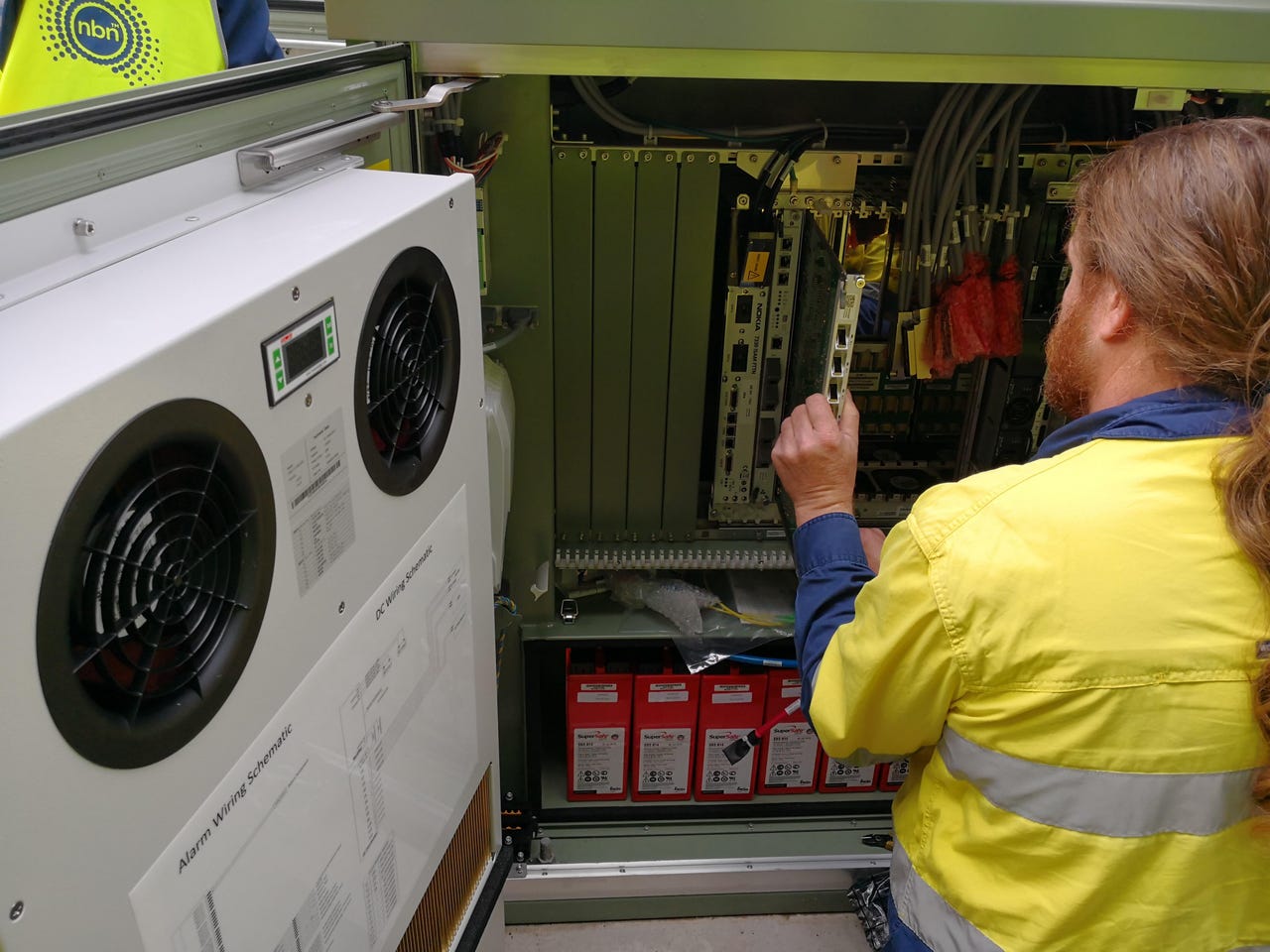Daytime NBN speeds are as good or bad as usual: ACCC

An NBN FttN node getting a Nokia line card installed
Although the amount of data going through NBN's network has increased by 70% during the day and is still sitting below the pre-coronavirus 9 pm peak, the Australian Competition and Consumer Commission (ACCC) has said speeds on the network have remained where they were before the pandemic.
ACCC chair Rod Sims said data from its Measuring Broadband Australia test units showed speeds on last Wednesday were "as good as we saw on an equivalent Wednesday in February, with performance above 80% of maximum plan speeds", in a speech delivered on Monday.
"This is not to say that there will not be pain points for individual consumers who were previously having problems, such as some FTTN and fixed wireless customers. And some will need assistance in remotely accessing their work systems or coming to grips with new applications," Sims said.
Sims said the ACCC now has a COVID-19 Taskforce to monitor and gather intelligence, and ensure consumers and businesses are informed about their rights. Sims gave the example of packages of content offered by streaming services being "materially different" from what is being delivered now, due to events such as cancellation of sporting events.
"While some have waived their monthly fees, we are receiving complaints and observe generally, that many companies allow you to sign up online but only allow you to disconnect through a call centre," Sims said.
"While we understand many call centres are facing challenges, it is inappropriate that many customers who under financial pressures are unable to cancel services."
The ACCC chair said he expects the use of online services to be permanently increased when the pandemic is over.
"I am confident e-shopping will not return to pre-crisis levels; with more people exposed to the convenience of e-shopping why would they revert? Both e-health and e-education have been much talked about for years but they are now necessarily being embraced. Again, I suspect use of both will be permanently boosted," he said.
"Surely Skype or Zoom meetings will not return to pre-crisis levels. I know that next time someone wants me to do morning or weekend TV interviews I will simply say 'Skype me'.
"This horrible crisis is, therefore, also an opportunity."
Last week, the ACCC granted interim authorisation for NBN and five retailers -- Telstra, Optus, TPG, Vodafone, and Vocus -- to create a working group to handle network congestion and coordinate financial support during the pandemic.
Sims said on Monday that a sixth retailer, Aussie Broadband, would be added to the working group. The ACCC will be classed as an observer of the group, with any decision taken to be reported by NBN to the ACCC and retailers that are not part of the group. The ACCC said authorisation could be revoked at any time.
In its application for authorisation, NBN sought a six-month approval beyond its standard network delivery objectives, to give greater or priority access to groups such as health and education centres, the elderly, or vulnerable people in rural and remote areas; the ability to restrict the supply of "certain hardware and services" depending on location or certain customers or customer groups; as well as to be able to share generic customer information, demand forecasts, and logistics information.
The application was needed as the proposal would violate clauses of Australia's Competition and Consumer Act.
Sims added that the ACCC was still concerned about making sure consumers are able to get connected to the NBN if they are in a premises that is yet to be connected to the network, as well as making sure consumers are able to shift back to old plans when the crisis is over.
